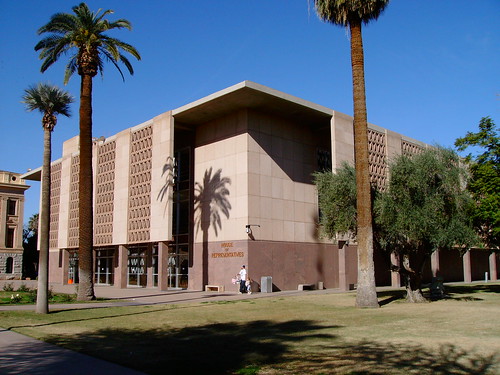[Source: Keli Clark, Oklahoma Parks, Resorts, and Golf] — We hear news each day of economic woes affecting Wall Street, corporate giants, major manufacturers and small businesses. Federal, state and local governments are not immune and feel pinched by the pressures of money shortages. In a recent budget committee meeting, California Gov. Arnold Schwarzenegger suggested the closure of 220 state parks, along with numerous other program cuts, to help alleviate a $24 billion budget deficit his state is facing. According to news reports, citizens at this hearing pleaded passionately to find other ways to keep these resources available and keep the parks open. The protection of historic structures and natural resources, along with the recreational and educational opportunities parks offer, were foremost in their argument to keep the facilities operating.
California is just one example. The other states also are trying to maintain a balance for taxpaying citizens who pump money into their state’s economy and expect a return on their investment.
On a recent trip to Arizona, I looked forward, as always, to visiting a state park to compare it to an Oklahoma state park experience. I chose Jerome State Park since I would be staying in nearby Sedona. As we made our way up the mountain, a sign pointed in the direction of the state park. To my dismay, a sign that had been placed directly below the main sign said “Closed.” Not wanting to believe what I saw and hoping it was just closed for lunch, we drove as far as we could on the road only to see the gate shut and padlocked. Disappointed, we made our way to downtown Jerome and the art galleries and souvenir shops that lined the streets.
In each store, I asked about the closure of the state park and was told each time it was because of budget cuts. Most of the stores had placed petitions on their counters asking for signatures to support reopening the park. The citizens of Jerome are passionate about the loss of this state park, and they have good reason. The town’s economy and residents’ livelihood are suffering because of the closing. As one store clerk explained, this is the busiest time of the season for them. Unfortunately, the number of people coming this year is about half of what it has been in previous years. This same clerk said she had been an employee of the park but was forced to find another way to support her family.
Of course, there are two sides to every story. When I called Arizona park officials, the public information officer explained the park was closed for capital improvements. A wall had collapsed in the main building, and there was no money in the remaining budget to make immediate repairs, so the park had to be closed for the season. Besides Jerome, another Arizona park also has been closed for capital improvements, the official said.
It’s an eye-opening experience to see the immediate and ripple effects on the economy triggered by the closing of a state park. Although the budget situations facing Oklahoma state parks are not as dire as those in California or Arizona, we are facing budget cuts, hiring freezes, and a mandate on needed repairs as our parks continue to keep gates open and operate on a daily basis. As stewards of our land, we should not take for granted what we have available to us. By continuing to respect what we have and maintaining our parks, we can ensure our future generations have these same opportunities. [Note: To read the full article, click here.]
 [Source: Philip Wright, Camp Verde Bugle] — If passed, House Bill 2001 would just about kill any hope that the Douglas Mansion in Jerome State Historic Park will reopen within the foreseeable future. In spite of work continuing on the stabilization project to the mansion, the current news reports regarding the budgets for conservation funds, including State Parks, predict that most, if not all, state parks in Arizona may be forced to close.
[Source: Philip Wright, Camp Verde Bugle] — If passed, House Bill 2001 would just about kill any hope that the Douglas Mansion in Jerome State Historic Park will reopen within the foreseeable future. In spite of work continuing on the stabilization project to the mansion, the current news reports regarding the budgets for conservation funds, including State Parks, predict that most, if not all, state parks in Arizona may be forced to close.
You must be logged in to post a comment.